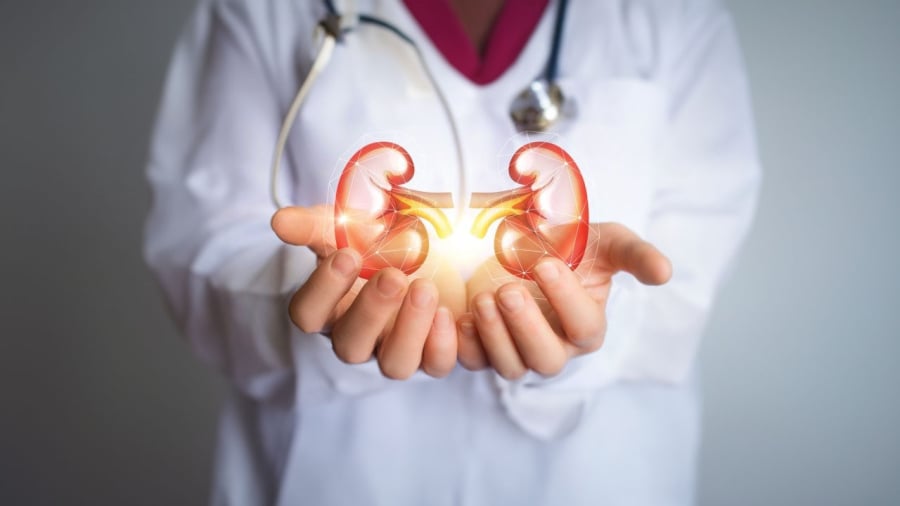Dark circles under the eyes not only make you look old, but they can also be a sign of a serious health condition. Therefore, you need to be careful if you constantly have dark circles even though you have enough sleep for 6-7 hours a day. Dark circles under the eyes can be related to the following diseases:

Liver disease
The liver is the body’s detoxifier. The liver helps eliminate toxins. If the liver is weak or experiencing problems, it can also cause dark circles under the eyes. Especially if there are additional symptoms such as yellow skin, yellow eyes, yellow urine, fatigue, loss of appetite, poor digestion, and nausea, don’t ignore them.
Stomach problems
Dark circles under the eyes indicate that your stomach may be weak or inflamed. People with gastritis have poor digestion and absorption, which can result in dark circles under the eyes. If you often feel bloated, be cautious.

Kidney problems
The kidneys are responsible for urine excretion. If the kidneys have problems, it will affect the excretion process, leading to the accumulation of toxins in the blood, resulting in dull skin and dark circles under the eyes. If you have additional symptoms related to the kidneys such as swelling, darkened skin, tiredness, abnormal urination, it’s important to seek medical attention.
Sinus problems
If you often have nasal conditions, it can weaken the blood vessels around the eyes, making them appear darker. Continuous sneezing and nasal allergies can affect the blood vessels under the eyes.
Endocrine disorders, irregular menstrual cycles
Women with endocrine imbalances are prone to dark circles under the eyes. If you have abnormal menstrual symptoms such as heavy bleeding, irregular periods, dark clots, difficulty conceiving, it’s important to seek medical advice for timely treatment to avoid affecting fertility.

Vitamin C deficiency
A lack of Vitamin C can also cause dark circles under the eyes because it is a powerful antioxidant that helps produce collagen. When Vitamin C is deficient, the thin and sensitive skin around the eyes becomes weaker and leads to dark circles. If combined with symptoms such as peeling hands, craving for sour foods, it’s possible that you have a Vitamin C deficiency. Consume foods rich in Vitamin C such as citrus fruits, peppers, strawberries, broccoli, cabbage, and potatoes.
Vitamin A deficiency
Vitamin A is also a great vitamin for healthy skin. A lack of Vitamin A can make the dark circles under the eyes more pronounced. A deficiency in Vitamin A can also lead to dry and peeling skin. To supplement Vitamin A, you need to eat foods such as cheese, eggs, fish oil, milk, yogurt, and liver.
Iron deficiency
If you experience symptoms such as dizziness, fainting, and pale skin, it’s likely that you have an iron deficiency. When there is an iron deficiency, it can lead to anemia and dark circles under the eyes. Consume foods high in iron such as liver, red meat, nuts, and dried fruits to supply iron to your body. It’s important to seek medical advice to determine the underlying cause of anemia and iron deficiency to prevent any further health risks.
Vitamin K deficiency
A deficiency in Vitamin K can lead to poor blood circulation, causing blood to accumulate under the eyes and create dark circles. Some good sources of Vitamin K are broccoli, spinach, vegetable oils, and cereals. This is a phenomenon that is often overlooked. Vitamin K deficiency can also lead to a decrease in calcium absorption, resulting in weakened bones. Therefore, it’s important to avoid Vitamin K deficiency.
Don’t underestimate the dark circles under your eyes. If you have other symptoms mentioned above, remember to seek medical advice.






































